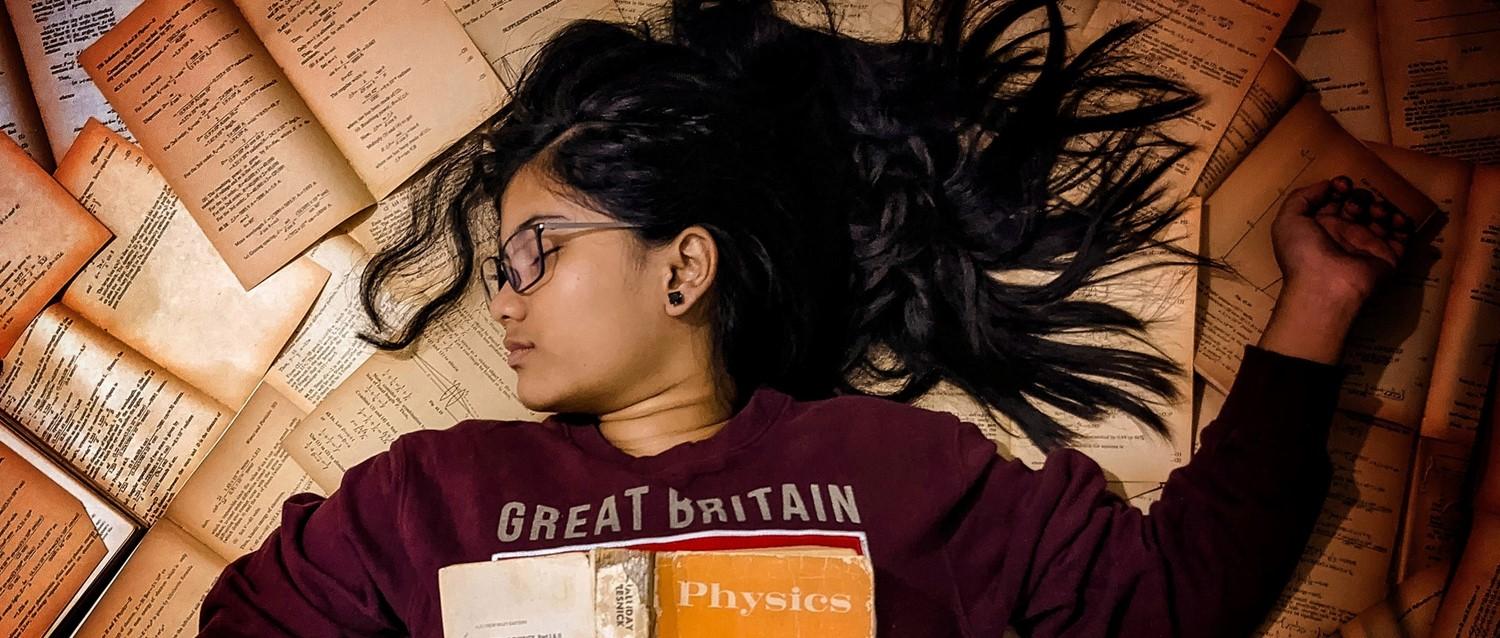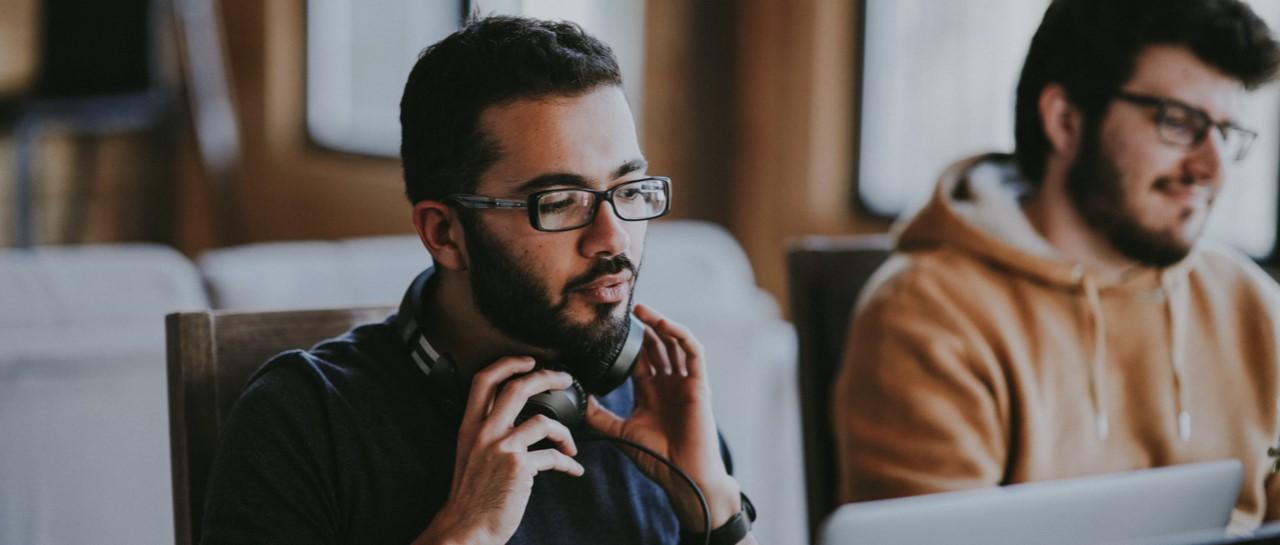
Why your anxiety at night can feel so intense
Peer reviewed by Dr Sarah Jarvis MBE, FRCGPLast updated by Lydia SmithLast updated 18 Feb 2019
Meets Patient’s editorial guidelines
- DownloadDownload
- Share
- Language
- Discussion
Anxiety can affect every part of our lives, but anxiety at night can often feel much worse than in the day - stopping us from falling asleep, or waking us in the early hours of the morning. Not only is this exhausting and frustrating, but poor sleep can leave us feeling more anxious the next day.
In this article:
After a long day, you climb into bed and wait for sleep to come - but your mind has other ideas. Instead of restful slumber, anxiety starts to creep in and you think about work, bills or an awkward conversation you had earlier that day, and your head soon becomes crowded with worries.
"I think my anxiety, when it's worse at night, is when I feel completely alone," says Crissy, 26. "I overthink which stops me from sleeping as I just can't switch off.
"The worst is when it turns into panic attacks where my chest tightens. I feel like I can't breathe and I do get night sweats," she adds. "The next day I'm drained, I can barely function and I just find it hard to get up which then sets back my entire day."
Continue reading below
Why is my anxiety worse at night?
"Sleep promotes rest and relaxation, and gives us a chance to recuperate and let go of the stresses of the day," says Dr Natasha Bijlani, a consultant psychiatrist who provides treatment for anxiety at Priory Hospital Roehampton. "However, this isn't the case for the many individuals who struggle with anxiety and panic attacks at night."
There is no single reason why people experience anxiety at night or panic attacks at night, she explains, but several factors may be involved.
"We do know that the brain doesn't 'switch off' during sleep, so it's possible for any pent-up worries or anxieties to manifest in our unconscious brains, leading to nocturnal panic attacks," Bijlani says.
Simply being aware that others are sleeping soundly can lead to a sense of isolation and worsen anxiety at night, too. Small problems, such as forgetting to post a letter, can suddenly seem much worse than they actually are.
"Those who struggle with daytime anxiety and panic attacks are more likely to experience anxiety at night because there are fewer distractions to prevent them from worrying excessively and further, their heightened anxiety is likely to affect their quality of sleep," Bijlani explains.
When people are anxious during the day, they can avoid thinking about the thoughts that cause them distress by doing activities, says Nicky Lidbetter, CEO of Anxiety UK. “At night that is harder, and everything is quiet,” she says.
Some also worry their anxiety at night may impact others in a negative way.
"People also say to us that they're worried about having a panic attack in the night and waking up other people," Lidbetter explains.
"We get calls about panic attacks at night too. People go from being in a relaxed state of sleep to waking up with a jolt, with an adrenaline surge," Lidbetter says. "That can be hard to cope with because it can be very sudden and render them into a state of panic in a few seconds. It can feel quite destabilising."
Another factor is the closure of support services at night, which some people rely on during an anxiety or panic attack.
"People who seek reassurance, which is a common characteristic of anxiety, also find at night that most help services are closed," Lidbetter says.
"With the exception of helplines like the Samaritans which run on a 24/7 basis, I think it's fair to say that most primary care mental health services close, which can rack up people's anxieties."
How to calm anxiety at night
Back to contentsThe relationship between sleep and mental health is cyclical. If you have poor sleep, you're likely to feel tired the next day, which can make things even more difficult and stressful, which can make anxiety worse and result in another night of disturbed sleep. If you are struggling with anxiety at night and have trouble falling asleep, though, there are steps you can take.
Avoid caffeine
"Limit caffeine, sugar and alcohol before bed," Bijlani says. "These substances can make you anxious and jittery at night, and can prevent you from getting to sleep and staying asleep."
You could also try herbal teas, including chamomile or valerian extract, which can aid sleep.
"None of these are cures to anxiety at night, but they can make it more likely that someone will have a better sleep," Lidbetter says.
Prepare for the next day
Getting yourself organised for the following day can help put your mind at ease, Bijlani says.
"Many people struggle to get to sleep because they are anxious about the following day. In particular, Sunday nights, aka 'the Sunday scaries', can worsen anxiety levels, leaving people to feel exhausted the next day. You can try to reduce this anxiety by making sure that you have everything prepared. For example, you could have a to-do list or even get your clothes ready."
Establish a sleep routine
Developing a 'wind-down' routine before bed helps your body recognise when it's time for sleep.
"Try to go to bed and wake up at the same time every day. Even at the weekends, try to get up at a time that isn't too different to when you get up during the week," Bijlani advises.
It's also important to make sure you give yourself time to get the sleep you need, too.
"Going to bed too late and not leaving enough time for sleep may result in you constantly checking the clock and worrying that you're not going to feel rested the next day," Bijlani explains. "These negative thought processes can fuel anxiety."
Relaxation activities
Stephen Buckley, head of information at the mental health charity Mind, says taking steps to relax before bed can also make a difference in anxiety levels.
"Some people find that calming themselves through listening to relaxing music or having a bath can help. Breathing exercises, muscle relaxation and visualising scenes associated with happy memories can also help," he says.
Avoiding your laptop or phone an hour or so before bed is key, however, as certain devices give off blue light which research suggests can interrupt our sleep.
If you can't sleep, get up
Insomnia is frustrating, but lying in bed and trying to get to sleep is only going to make you feel worse. If you can't get back to sleep within 20 minutes, get up.
"Some people get a sleep phobia where they get fixated on not being able to get to sleep, which can become a big anxiety worry," Lidbetter says. "If you can't go to sleep, get up and do something else. Reading can be therapeutic or you could practise mindfulness.
"Anxiety UK has a strong partnership with the Headspace people, which is a great app and something you can just practise which is relatively easy to do. It just sets the scene for a restful night's sleep because it calms down your sympathetic nervous system and puts you into relaxation mode."
Get professional help
If you struggle with anxiety at night which is impacting your sleep or other aspects of your life, it's important to get help.
"If you find that feelings of anxiety are starting to significantly affect your day-to-day life, including feeling unable to sleep, you can talk with your GP about treatment options, such as talking therapies or medication," Buckley says.
Talking therapies may include cognitive behavioural therapy, which can help change the way we think and behave, particularly when it comes to negative thinking.
"Talking about your problems with your doctor can be challenging, so Mind has produced a guide - 'Find the Words' - to help you prepare for the short time you get with your GP."
Patient picks for Anxiety

Mental health
How to deal with test anxiety
In the UK, 82% of teachers believe tests and exams have more impact on the mental health of their students than anything else. While feeling anxious before an exam is a normal reaction, high levels of test anxiety can lead to a deterioration in mental health and also negatively affect exam performance. It's important to find ways to cope with and reduce the pressure.
by Victoria Raw

Mental health
How to deal with back to work anxiety
It's a scenario many of us have experienced. The holiday we've been looking forward to for months is drawing to a close and as we pack our suitcases, anxiety about heading back to work begins to set in.
by Lydia Smith
Article history
The information on this page is peer reviewed by qualified clinicians.
18 Feb 2019 | Latest version

Ask, share, connect.
Browse discussions, ask questions, and share experiences across hundreds of health topics.

Feeling unwell?
Assess your symptoms online for free
Sign up to the Patient newsletter
Your weekly dose of clear, trustworthy health advice - written to help you feel informed, confident and in control.
By subscribing you accept our Privacy Policy. You can unsubscribe at any time. We never sell your data.